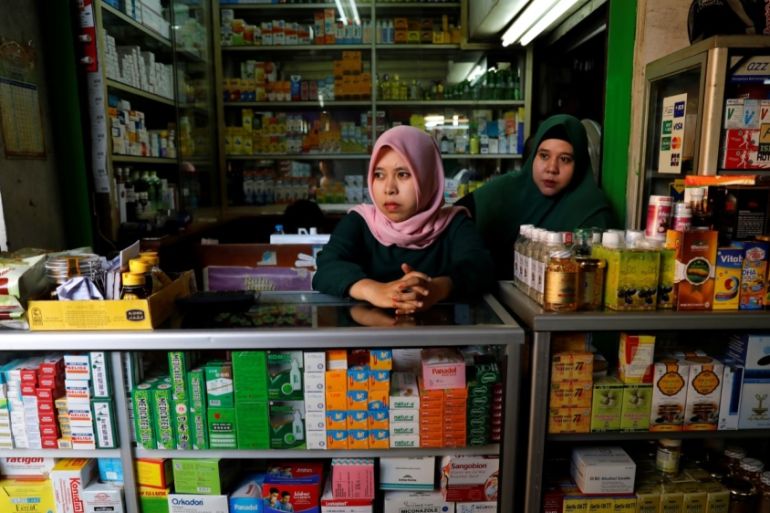Indonesia’s growth slows to 3-year low, more rate cuts expected
As economic growth sputters, coronavirus outbreak may pressure Indonesia’s central bank to cut interest rates again.

Indonesia‘s economic growth in the final quarter of 2019 was its slowest in three years, dragged down by a weakening global economy, and despite supportive efforts by policymakers that included four interest rate cuts by the central bank.
Economists expect the central bank to further cut rates to shield the economy from the impact of the coronavirus outbreak in China, the country’s biggest trading partner and a major source of direct investment.
Keep reading
list of 3 itemsIndonesia, UAE sign business deals worth nearly $23bn
Indonesia floods: Death toll hits 66 as more rain is expected
Indonesia’s economy expanded by 4.97 percent on an annual basis in the October-December quarter, data from the statistics bureau showed on Wednesday, slower than expected in a Reuters poll.
For 2019, the economy grew by 5.02 percent, short of the government’s 5.3 percent target.
Slowing global trade amid the trade dispute between the United States and China had hurt Indonesia’s important commodity exports, while national elections in April delayed investment decisions.
Household consumption, which accounts for more than half of Indonesia’s gross domestic product (GDP) also slowed, with sales of clothes, mobile phones, cars and motorbikes contracting, Suhariyanto, the head of the statistics bureau, said.
GDP is equal to the total value of all finished goods and services produced in a country.
Investment also remained sluggish, despite political uncertainty easing in the October-December period following last year’s elections. President Joko Widodo, who won a second term in office, started the term in October.
Josua Pardede, an economist at Bank Permata, warned the economy may remain under pressure in the first half of 2020 as the Chinese economy could be affected by the virus outbreak.
“Investment growth would still be low given that global uncertainty continues and also with the coronavirus putting pressure on the Chinese economy,” Pardede said.
The rupiah barely moved after the data was released, trading at 13,715 per US dollar at 04:30 GMT. There was also a muted reaction in the main stock index.
At a separate financial event, in advance of the data, Bank Indonesia (BI) Governor Perry Warjiyo promised to use all the central bank’s tools to support growth. The central bank last year cut interest rates four times by 100 basis points and eased lending rules in a bid to prop up GDP growth.
“BI will maintain an accommodative macroprudential policy stance and strengthen coordination with other relevant authorities in order to maintain financial system stability and stimulate the bank intermediation function,” he said.
The governor forecast a GDP growth rate of 5.3 percent in 2020, in line with the government’s target.
Indonesian authorities have expressed confidence that travel curbs and capital outflows stemming from the virus outbreak that has killed nearly 500 people and infected more than 24,000 others, mostly in China, will not seriously dent Indonesia’s economy.
Chinese tourists represent some 13 percent of total visitors to Indonesia and China is also the biggest buyer of Indonesian goods. Any deceleration in China’s growth could affect prices of commodities, among Indonesia’s main export sectors.
A central bank official said on Tuesday that any economic effect in 2020 from the coronavirus epidemic will be small.